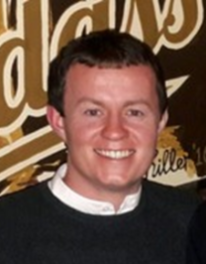Details
1-day course
CPD Credit: 6 hours; Competence/s: 1 & 2
Course Delivery Options
Course Overview
The construction industry must transition from predominantly high-carbon heating systems to low-carbon alternatives. This shift necessitates changes in the approach to system specifications and design. A wide range of heat pump technologies, along with various emitter and control options, are now available. These systems demand a higher level of expertise in both selection and integration, particularly within the context of energy-efficient buildings and renovation projects.
Course Aim
Prior to participating in the live, interactive Q&A session, attendees are required to complete the online modules and successfully complete the accompanying quizzes with each module.
Module 1 – Low Carbon Heating Options
Module 2 – Heat Pump Types
Module 3 – Design Fundamentals
Module 4 – Optimisation
Module 5 – Lessons from Viessmann Monitoring
Module 6 – Cold Weather Performance
Learning Outcomes/Objectives
Upon successful completion of this course, delegates should be able to:
- Gain insight into the evolution of heating systems in Ireland, with a focus on promoting low-carbon alternatives. Understand the life cycle costs of these systems, the planned shadow price of carbon affecting public sector buildings, and the role of carbon taxes in other sectors. Recognise the strategic benefits for practices that specialise in low-carbon heating technologies.
- Learn how to specify the appropriate type of heat pump for various building archetypes, including the advantages, disadvantages, and cost implications of different systems. Understand emitter design requirements and their performance impacts to ensure the overall system meets expected performance standards.
- Understand the key differences between sizing heat pumps and fossil fuel systems, and develop a working knowledge of modelling techniques that optimise both capital and operational costs. Assess how building fabric, airtightness, and ventilation systems influence heat pump design and sizing.
- Understand the electrical infrastructure requirements for heat pump installations, including the cost and implications of altering import capacity. Explore strategies to reduce running costs, such as optimising pre-heating with night-rate electricity.
- Optimise system performance using insights from the SuperHomes 2.0 research project. Understand the critical role of commissioning—both good and poor—on achieving design expectations. Develop awareness of future trends such as smart grids, dynamic energy pricing, and carbon-reducing technologies in building operations.
Who Should Attend?
This course is specifically tailored for the construction sector and will address a range of topics related to the specification and design of heating systems incorporating heat pumps in Ireland.
Trainer Profile
Luke Cummins, Engineering Manager, Precision Heating Ltd

Luke is an engineering professional with nearly 10 years’ experience in the heating industry. As Engineering Manager at Precision Heating Ltd, he oversees technical operations and project development, focusing on innovation and energy efficiency. A Mechanical Engineering graduate from TU Dublin, Luke specialises in advanced heating systems and sustainable energy, bringing valuable expertise to training and professional development.
About Precision Heating Ltd
Precision Heating is a leading supplier of energy-efficient heating and hot water solutions in Ireland. As representatives of leading heating technology manufacturers, the company delivers advanced, reliable systems for both residential and commercial projects. With a strong focus on sustainability and innovation, Precision Heating combines decades of industry expertise with top-tier European products to meet modern energy and performance standards.

Engineers Ireland supports the Sustainable Development Goals. This event
contributes to Engineers Ireland's Sustainability Framework.
Please contact the CPD Training Team for further information on scheduled course dates.